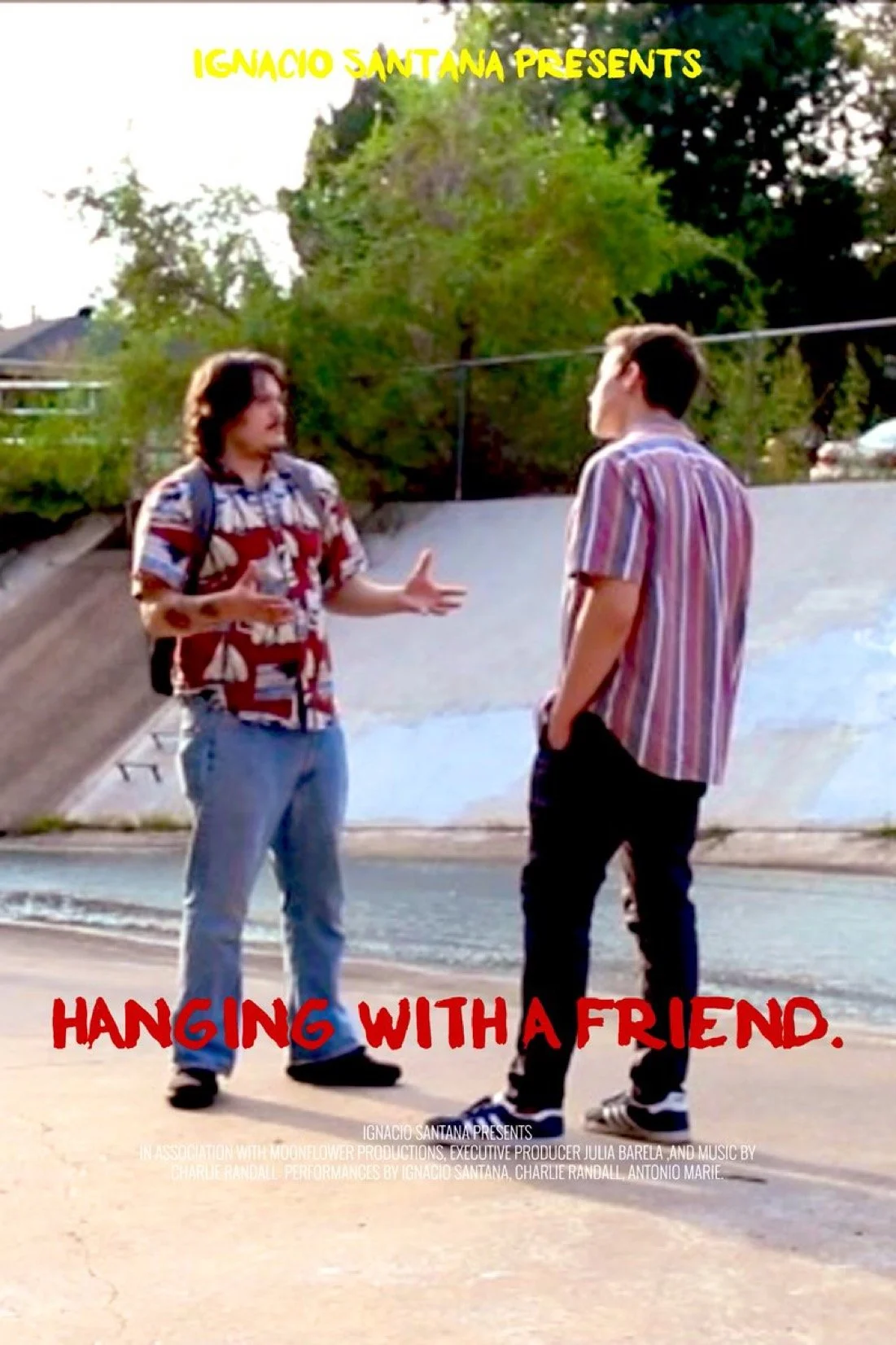No Shark, No Ending, No Problem (Really)
Folk Filmmaker review by Trevor Denning (@BookstoreThor)
Creators are also consumers. No one tells stories without watching or reading them. No one paints landscapes without looking out a window. No one cooks food without taking nourishment. But not everyone who consumes creates. One thing that is universal, however, is that we turn to stories looking for an experience that transcends our current reality. It’s why we want thrilling novels, and want to see them adapted into perfect (and very long) movies. It’s why virtual reality and the Metaverse are so appealing.
No Shark (the latest folk film from writer/director Cody Clarke) is something of a novel and a movie at the same time. Rules of both forms are broken. This will be a turn off to some people, a tedious curiosity to others, and an immersive experience for those who can relate. Yet one still has to ask, just because some rules can be broken (even artfully), should they?
Chase (Jules Roscoe) is a narcissist. More than that, she’s the sort of narcissist to which any creative person can empathize. Creators never fully enjoy a moment, but are constantly reframing everything as narrative. Nearly the entirety of No Shark is Chase’s inner monolog in voiceover. She can’t get out of her own head. Now, neither can we.
Privileged to her private thoughts, everything is framed as if she’s talking to a crowd, while she tells us that she’s talking to herself.
In good storytelling every character must have a strong desire. Chase’s desire is to be eaten by a shark. She’s obsessed with them to the point of worship, yet she expects one to arrive on her terms, yield to her fantasy. While I’ve never longed to be eaten by a shark, I can still relate to Chase both in the way she contextualizes every moment and in the way she wants to have a transcendent experience.
Her ramblings are hypnotic, drawing us in with rhythms and colorful imagery. We see everything that Chase sees, but she’s telling us how to see it, and if we’re not careful we’ll accept her words as truth. Is she an unreliable narrator? Perhaps. Mentally unstable? Certainly. This is her story, losers– we’re just invited along for the ride. The point is understanding her, not liking her. I found myself thinking of her as the female Travis Bickle, untrustworthy, unappealing, unstable, understandable still.
Visually, No Shark is appealing. Yes, Chase has an attractive body which she expects us to notice and appreciate. She does. More than that, Clark has an eye for framing his shots with more creativity than the static, centered tableaus that have become all the rage. Clarke uses wipes like turning pages for transitions to emphasize the literary side of the story. Unfortunately, it’s a creative risk that’s too on the nose and should have been used more sparingly or not at all.
Without getting specific, Chase finds her transcendent experience. Not in the way she hopes for, but in a way that a creative person will understand. No matter how immersive the story, the only way to touch transcendence is stop looking for it in consumption. You have to capture the energy you’ve absorbed, make your own story, and become a creator. But when you come right down to, what Chase wants is oblivion, an unmaking. So the only reasonable climax must also defeat the thesis.
Perhaps the point is that narcissism is an empty pursuit, a shark eating its own tale.
Characters like Chase force us to consider our own dark sides. Where No Shark stumbles is in its resolution. There’s a twist, yet it’s an anti-climax. It’s real life, leaving us the same people we were before taking this journey through Chase’s mind. We don’t turn to literature or film to see a natural world, rough and clumsy. We want preternatural polish. No one talks like Chase unplanned, and I appreciate that. But a conclusion that simply… is, well, it’s not enough.
A “there but for the grace of God go I” ending, would have left an impression. A Taxi Driver-esque mid-motion final shot, or a break in the fourth wall (though perhaps cheesy and cliche), could have been eerie. Without a big final image to change my perception of everything that came before, narratively No Shark doesn’t offer much reason for a second viewing. It’s a cold fish.
As a nuanced experiment in storytelling, however, it’s a piece of ART.




